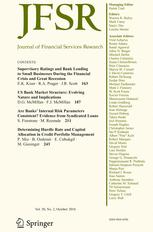
The Real Effects of Universal Banking: Does Access to the Public Debt Market Matter?
I analyze the impact of the formation of universal banks on corporate investment by looking at the gradual dismantling of the Glass-Steagall Act’s separation between commercial and investment banking. Using a sample of US firms and their relationship banks, I show that firms curtail debt issuance and investment after positive shocks to the underwriting capacity of their main bank. This result is driven by unrated firms and is strongest immediately after a shock. These findings suggest that universal banks may pay more attention to large firms providing more underwriting opportunities while exacerbating financial constraints of opaque firms, in line with a shift to a banking model based on transactional lending.





